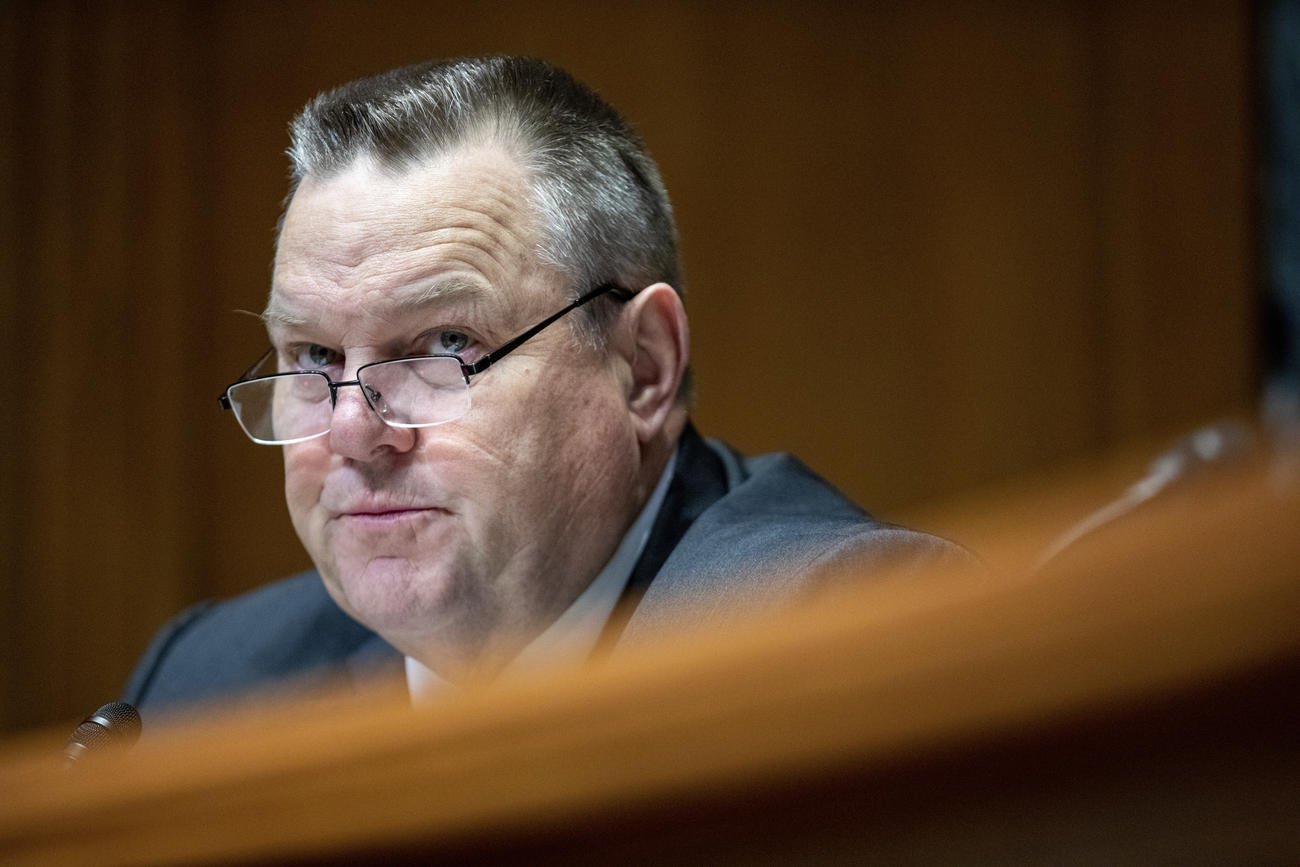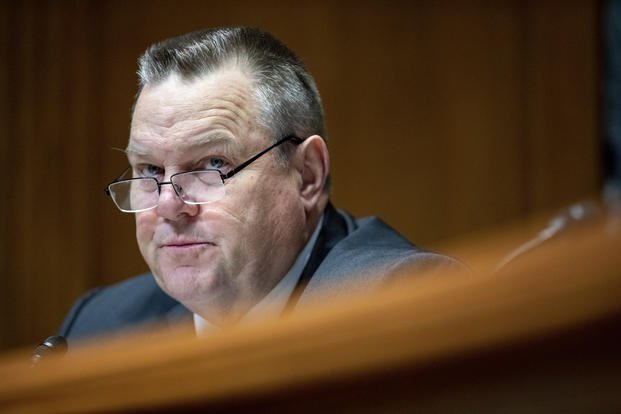

After effectively quashing the process by which the Department of Veterans Affairs was to update its facilities, blocking the confirmation of commissioners who would have made recommendations on closures, renovations and brand new construction, Sen. Jon Tester, D-Mont., has introduced legislation that would help the VA hire outside experts to draft a plan.
The Senate Veterans Affairs Committee chairman’s bill would fund the VA to hire capital asset management experts for all of its medical centers, at the same time adding members to the VA’s Capital Asset Planning Committee.
The bill also would require that the VA develop plans, budgets and oversight mechanisms for building new facilities, while setting schedules for shedding or repurposing unused and vacant buildings.
Read Next: Army and Air Force Run Out of Female Hot Weather Uniforms Amid Summer Heat Wave
Tester said the VA lacks the expertise to manage its vast infrastructure, which consists of more than 6,300 facilities with an average age of 60 years. Tester’s bill, dubbed the Build, Utilize, Invest, Learn and Deliver, or BUILD, for Veterans Act, would “set the VA up for success” by requiring the department to develop a road map for updating the system, according to the senator.
“The BUILD for Veterans Act pushes VA to modernize and manage its current and future infrastructure needs through commonsense provisions that’ll save taxpayer dollars in the process,” Tester said in a statement provided to Military.com.
The VA Asset and Infrastructure Review, or AIR, Commission, which was essentially killed before it could start work when Tester and others refused to confirm commissioners, was designed to provide guidance for the department to build new facilities, update others and dispose of underutilized or unwanted real estate.
Established by the 2018 Mission Act, the commission was to review the VA’s proposals for managing its $20 billion maintenance and construction backlog and nearly $60 billion in requirements for major and minor construction projects, while also taking into account public and expert opinion.
As part of the process, the VA reviewed its holdings and demographics and came up with recommendations for closures and construction for review by the commission.
The department wanted $2 trillion for construction and demolition, including the replacement of 18 VA medical centers, construction of 13 new facilities and the closure of 17 major hospitals.
Not surprisingly, lawmakers in states and areas facing closures weren’t happy.
Sen. Joe Manchin, D-W.V., immediately took issue with the report when it was released in March, saying that the recommendations were “skewed against rural states.”
The VA recommended downsizing three out of four VA medical centers in West Virginia.
South Dakota Republican Sen. Mike Rounds, whose state would have seen the loss of three full service medical centers following construction of a new facility in the western part of the state, called the AIR Commission the “ERROR Commission.”
“The VA MISSION Act and its [Base Realignment and Closure]-style process called the AIR Commission were bad public policy when I voted against them in 2018, and they have not improved with age,” Rounds said in a press release in May.
Manchin, Rounds and seven other senators joined Tester in blocking the commission’s work, saying the VA’s recommendations did not “uphold our obligations to America’s veterans.”
“The Commission is not necessary for our continued push to invest in VA health infrastructure,” wrote the senators in a statement released in June.
Historically, the VA’s track record for managing construction projects is not good — the most egregious example of poor oversight being the Veterans Affairs medical center project in Aurora, Colorado, which opened in 2018, 10 years behind schedule and more than $1 billion over budget.
Within three years of opening, the facility required an additional $40 million to be fully functioning, bringing the total cost to more than $2 billion.
As a result of that project, Congress passed a law requiring the VA to cede oversight and management of projects that cost more than $100 million to the U.S. Army Corps of Engineers.
A person who worked to craft Tester’s proposal but who was not authorized to speak publicly about the bill told Military.com that the Corps of Engineers requirement would not change.
Several veterans service organizations have thrown their support behind the BUILD for Veterans bill, including Disabled American Veterans, Iraq and Afghanistan Veterans of America, the American Legion, Paralyzed Veterans of America and the Veterans of Foreign Wars.
“Investing in and revitalizing the aging VA infrastructure is vital to the overall success of the VA health care system. We must ensure that VA is properly resourced and structured to manage the infrastructure of the largest integrated health care network in the nation,” said Paul Dillard, the American Legion’s national commander.
The cost of the bill has yet to be determined by the Congressional Budget Office.
Tester said he plans to introduce the legislation this week with an aim to gain bipartisan support.
“This bill is critical to making sure VA is well-positioned to get new facilities off the ground while maintaining existing ones, and I’ll be fighting tooth and nail to get it across the finish line as quickly as possible,” Tester said.
— Patricia Kime can be reached at [email protected]. Follow her on Twitter @patriciakime
Related: Senators from Rural States Trying to Stop Wave of VA Hospital Closures Before They Start
© Copyright 2022 Military.com. All rights reserved. This material may not be published, broadcast, rewritten or redistributed.
